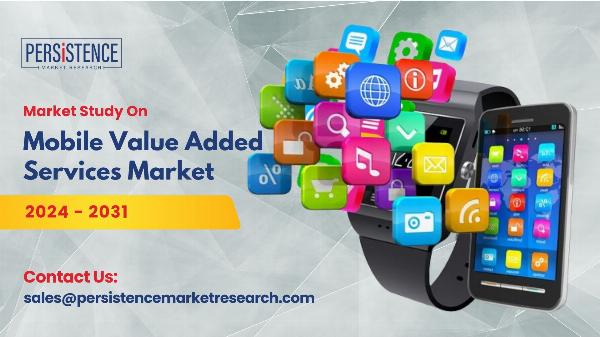Mobile Value Added Services: Trends and Predictions for the Next Decade

Strong 8k brings an ultra-HD IPTV experience to your living room and your pocket.
Introduction
In an ever-evolving digital landscape, Mobile Value Added Services (VAS) are at the forefront of shaping how we interact with technology. VAS encompasses a broad spectrum of services beyond traditional voice calls and SMS, including everything from mobile banking to enhanced multimedia experiences. As we look ahead to the next decade, several key trends and predictions are set to redefine the mobile VAS ecosystem.
The Mobile Value Added Services (MVAS) market encompasses a range of services provided over mobile networks that go beyond traditional voice calls and SMS. These services include mobile banking, mobile entertainment, location-based services, and mobile advertising. The global MVAS market is experiencing substantial growth due to the increasing adoption of smartphones, advancements in mobile technology, and rising consumer demand for personalized and interactive content. According to Persistence Market Research, the mobile value added services market is projected to grow at a CAGR of 7.8%, increasing from US$ 220.3 Bn in 2024 to US$ 345.6 Bn by 2031.
1. Rise of 5G and Beyond
The rollout of 5G technology has already begun transforming the mobile landscape with its promise of ultra-fast data speeds, lower latency, and increased connectivity. Over the next decade, 5G is expected to become ubiquitous, laying the groundwork for a new wave of VAS innovations. Enhanced network capabilities will support more sophisticated applications, from high-definition video streaming to augmented and virtual reality experiences.
The introduction of 6G, anticipated around the 2030s, will further amplify these advancements, potentially offering even greater speed and connectivity improvements. This evolution will enable VAS providers to develop more immersive and interactive services, revolutionizing sectors such as entertainment, healthcare, and smart cities.
2. Integration of Artificial Intelligence
Artificial Intelligence (AI) is poised to become a cornerstone of mobile VAS. AI-driven services will become increasingly prevalent, providing personalized user experiences and automating various tasks. Chatbots and virtual assistants will evolve to offer more nuanced interactions, leveraging natural language processing to better understand and respond to user needs.
Predictive analytics will allow VAS providers to offer tailored recommendations and anticipatory services based on user behavior and preferences. For instance, AI could power intelligent mobile banking services that anticipate financial needs or suggest optimal investment strategies, significantly enhancing user experience.
3. Expansion of Mobile Payments and Financial Services
Mobile payments and digital wallets have already gained substantial traction, but the next decade will see these services become even more integral to everyday transactions. The rise of cryptocurrencies and blockchain technology is set to transform mobile financial services, offering enhanced security and new opportunities for cross-border transactions.
Additionally, the integration of financial services with mobile platforms will lead to more sophisticated offerings, such as instant loans, insurance, and investment opportunities, all accessible through a single mobile interface. As financial inclusion becomes a global priority, mobile VAS will play a crucial role in bringing banking services to underserved populations.
Read More: https://www.persistencemarketresearch.com/market-research/mobile-value-added-services-market.asp
4. Growth of Health and Wellness Services
Mobile VAS will increasingly focus on health and wellness, driven by the growing demand for personalized healthcare solutions. Mobile health apps, wearables, and telemedicine services will become more advanced, offering real-time health monitoring, remote consultations, and personalized treatment plans.
The integration of AI and machine learning will enhance the accuracy and effectiveness of health services, enabling more precise diagnostics and tailored health recommendations. Additionally, as health data privacy concerns continue to rise, secure and compliant mobile VAS solutions will become essential.
5. Advancements in Augmented and Virtual Reality
Augmented Reality (AR) and Virtual Reality (VR) technologies are set to transform the mobile VAS landscape by providing immersive experiences in gaming, education, and retail. With the enhanced bandwidth and low latency of 5G and future networks, AR and VR applications will become more sophisticated and accessible.
In gaming, mobile VAS will offer more engaging and interactive experiences, blending virtual elements with the real world. In education, AR and VR will facilitate interactive learning environments, while in retail, virtual shopping experiences will allow customers to try products in a digital space before making a purchase.
6. Increased Focus on Privacy and Security
As mobile VAS becomes more integral to our lives, privacy and security will remain top priorities. With the proliferation of data-driven services, there will be an increased emphasis on safeguarding user information. Advances in encryption technologies and secure data storage will be critical in protecting against breaches and ensuring compliance with data protection regulations.
Additionally, as IoT devices become more common, securing the vast network of connected devices will be a significant challenge. VAS providers will need to implement robust security measures to protect against cyber threats and ensure user trust.
7. Growth of IoT and Smart Home Integration
The Internet of Things (IoT) will drive the next wave of mobile VAS, with smart home devices becoming increasingly prevalent. Integration of mobile platforms with IoT devices will enable users to control and monitor their homes remotely, from adjusting thermostats to managing security systems.
VAS will extend to offer enhanced smart home experiences, such as automated routines and intelligent home management systems. The seamless integration of these services into mobile platforms will provide users with greater convenience and control over their living environments.
8. Emergence of New Business Models
The evolution of mobile VAS will be accompanied by the emergence of new business models. Subscription-based services, freemium models, and in-app purchases will continue to evolve, offering users flexible and personalized options.
Innovative pricing structures, such as pay-per-use or tiered service levels, will allow users to choose the level of service that best fits their needs. Additionally, partnerships between VAS providers and other industries, such as telecom operators and tech companies, will drive new service offerings and enhance value for users.
Conclusion
The next decade promises to be a period of significant transformation for Mobile Value Added Services. From the integration of advanced technologies like 5G and AI to the expansion of mobile financial services and the growth of AR/VR experiences, the mobile VAS landscape will continue to evolve and adapt to changing user needs and technological advancements.
As we move forward, the focus on privacy, security, and seamless integration will be crucial in shaping the future of mobile VAS. By embracing these trends and innovations, VAS providers will be well-positioned to deliver compelling and valuable services that enhance our digital lives and drive the next wave of mobile innovation.
Follow Us: LinkedIn | Twitter | Instagram
Note: IndiBlogHub features both user-submitted and editorial content. We do not verify third-party contributions. Read our Disclaimer and Privacy Policyfor details.


